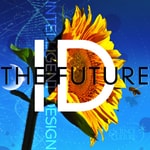Intelligent Design the Future – Details, episodes & analysis
Podcast details
Technical and general information from the podcast's RSS feed.

Intelligent Design the Future
Discovery Institute
Frequency: 1 episode/2d. Total Eps: 200

Recent rankings
Latest chart positions across Apple Podcasts and Spotify rankings.
Apple Podcasts
🇨🇦 Canada - lifeSciences
14/08/2025#25🇬🇧 Great Britain - lifeSciences
14/08/2025#85🇺🇸 USA - lifeSciences
14/08/2025#15🇫🇷 France - lifeSciences
14/08/2025#85🇨🇦 Canada - lifeSciences
13/08/2025#41🇬🇧 Great Britain - lifeSciences
13/08/2025#76🇺🇸 USA - lifeSciences
13/08/2025#14🇫🇷 France - lifeSciences
13/08/2025#58🇨🇦 Canada - lifeSciences
12/08/2025#46🇬🇧 Great Britain - lifeSciences
12/08/2025#90
Spotify
No recent rankings available
Shared links between episodes and podcasts
Links found in episode descriptions and other podcasts that share them.
See all- https://idthefuture.com/1955/
2 shares
- https://idthefuture.com/1954/
2 shares
- https://idthefuture.com/1948/
2 shares
RSS feed quality and score
Technical evaluation of the podcast's RSS feed quality and structure.
See allScore global : 53%
Publication history
Monthly episode publishing history over the past years.
Behe, Meyer, & Lennox: The Evidence for Design is Growing
Episode 2072
vendredi 20 juin 2025 • Duration 41:34
Brian Miller on Advancing Biology Through an Engineering Lens
Episode 2071
mercredi 18 juin 2025 • Duration 22:44
Can Evolutionary Processes Explain Human Creativity?
Episode 2062
mercredi 28 mai 2025 • Duration 38:53
Energy Harnessing: An Achilles Heel for Origin of Life
Episode 1972
vendredi 25 octobre 2024 • Duration 26:02
Jonathan Wells on How to Defeat Zombie Science
Episode 1971
mercredi 23 octobre 2024 • Duration 01:19:04
Progress Since the Sternberg Smithsonian Saga 20 Years Ago
Episode 1970
lundi 21 octobre 2024 • Duration 24:17
Paul Nelson on Listening to Nature for Her Answers
Episode 1969
vendredi 18 octobre 2024 • Duration 19:24
Samuel Wilberforce Critiques the ‘Unbounded Assumptions’ of Darwin’s Theory of Evolution
Episode 1968
mercredi 16 octobre 2024 • Duration 35:26
How Evolutionary Fitness Landscapes Bolster Design Arguments
Episode 1967
lundi 14 octobre 2024 • Duration 26:56
Paul Nelson on Freeing Minds Trapped in a Framework of Naturalism
Episode 1966
vendredi 11 octobre 2024 • Duration 23:55